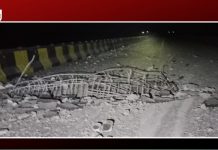Author: Meraj Khalid Baloch
In the shadows of theory lies the undeniable weight of personal experience—a journey etched with the imprints of oppression, resistance, and the haunting interplay between the oppressor and the oppressed. As I pen down this essay, it is both an act of catharsis and a deliberate attempt to bridge the chasm between the theoretical landscape painted by Paulo Freire in “Pedagogy of the Oppressed” and the visceral reality of my own life.
This narrative unfolds against a backdrop where the boundaries of theory blur into the stark contours of lived oppression. The words that follow are not merely a recounting of personal trials but an exploration of the profound ways in which systemic oppression can deform both individuals and communities. The very essence of this essay is an acknowledgment of the symbiotic relationship between theory and reality, as I delve into the depths of my experiences within an oppressed nation.
However, it is crucial to acknowledge that within these lines lie self-censored emotions and incidents—narratives silenced to protect, stories left untold to shield against potential repercussions. The omnipresence of the oppressor casts a long shadow, compelling me to tread cautiously, omitting details that could be deemed dangerous in the unforgiving gaze of those who still wield power over lives and narratives.
In reflecting on the collusion of collaborators, those who have aligned themselves with the oppressor, it becomes imperative to underscore the gravity of their misguided choices. These collaborators, often driven by self-interest within a broken system, stand on the wrong side of history. Their actions, whether fueled by fear or greed, contribute to the perpetuation of a cycle of oppression that corrodes the very fabric of our community.
Why share these intimate reflections? It is a call to dialogue—an invitation to traverse the terrain of theoretical discourse with the lived struggles of those navigating the oppressive landscapes. “Pedagogy of the Oppressed” serves as a compass, guiding us through the labyrinth of power dynamics, but the compass alone cannot convey the visceral impact of shattered dignity, physical torment, and the disheartening betrayal from within one’s own community.
As you embark on this journey through my words, consider the delicate dance between theory and personal narrative. The stories within are not mere anecdotes; they are a testament to the resilience that emerges even in the bleakest hours of oppression. This is an ode to the endurance of the human spirit—a spirit that persists, even as theories are challenged, and realities unravel in the harsh light of truth.
In “Pedagogy of the Oppressed,” Paulo Freire explores the intricate dynamics of oppression, shedding light on the paradoxical phenomenon where the oppressed can become instruments of their own subjugation. Freire delves into the psychology of this transformation, offering profound insights into how power structures perpetuate themselves. One of the book’s compelling aspects is Freire’s examination of the oppressor-oppressed relationship, revealing the subtle mechanisms through which oppressed individuals, once empowered, may replicate oppressive behaviors. He argues that education plays a pivotal role in this process, emphasizing the need for a liberatory pedagogy that empowers learners rather than perpetuating hierarchical systems.
Freire’s analysis prompts readers to critically reflect on societal structures and the potential for transformative education to break the cycle of oppression. While the text is dense and thought-provoking, its exploration of the self-perpetuating nature of oppression is both relevant and enlightening. Pedagogy of the Oppressed challenges readers to reconsider their roles within systems of power and encourages a proactive engagement in dismantling oppressive structures.
Overall, Freire’s work serves as a powerful call to action, urging us to recognize our agency in challenging oppressive systems and fostering a more equitable society. The book’s enduring relevance makes it a must-read for anyone interested in social justice, education, and the dynamics of power.
Within the intricate web of oppression, Freire delves into the disconcerting phenomenon of oppressed individuals replicating the very behaviors that subjugate them. He highlights how the oppressed, once granted a semblance of power or agency, may succumb to the temptation of becoming oppressors themselves. This paradoxical transformation, according to Freire, stems from the internalization of oppressive ideologies and structures, leading individuals to adopt the methods used against them.
The replication of oppressive behavior by the formerly oppressed is, in Freire’s analysis, a complex interplay of psychological, social, and educational factors. The internalization of a subservient identity can breed resentment and a desire for empowerment, but when this newfound agency is gained within the existing oppressive framework, it often manifests as a distorted mirror image of the oppressor’s tactics. As individuals navigate their escape from oppression, they may inadvertently perpetuate the same hierarchical structures that initially marginalized them, further entrenching the cycle of subjugation. Freire’s exploration prompts readers to confront the uncomfortable reality that the journey from oppression to empowerment is not always a linear progression, as the risk of replicating oppressive behavior looms large.
My personal experience of oppression within my own nation and community adds a poignant layer to Freire’s exploration. The dynamics of internal oppression, where individuals within the oppressed group contribute to the perpetuation of systemic inequalities, reflect the deep-seated impact of oppressive structures. This internalization of oppression can manifest as intra-community discrimination, where power imbalances persist despite a shared history of marginalization. Freire’s insights provide a lens through which one can understand the complexities of navigating identity within a community that, paradoxically, becomes a source of both support and oppression. My lived experience underscores the urgency of addressing not only external oppressors but also fostering awareness and dialogue within the community to break the cycle of internalized oppression and build solidarity against shared systemic challenges.
Personal experiences serve as a powerful testament to the tangible impact of oppression. The humiliation, physical torment, and mental anguish inflicted by external oppressors underscore the harsh realities faced by individuals within oppressed communities. These acts of aggression not only aim to subjugate but also seek to strip individuals of their dignity and resilience.
In the face of such adversity, resilience becomes a poignant narrative of resistance. This attempt to endure and articulate these struggles provides a human dimension to the theoretical concepts discussed by Freire. It speaks to the strength required to navigate a world rife with systemic injustices and internal divisions. By sharing my personal feelings, I’m trying to contribute to the broader conversation on oppression, shedding light on the stark contrast between the theoretical analyses and the lived experiences of those grappling with the profound consequences of oppressive structures. My effort in speaking out adds a personal dimension to the collective struggle for liberation, inspiring empathy and understanding that extends beyond theoretical frameworks.
Countless personal ordeal I have been through serve as a chilling backdrop to Freire’s theories, revealing the stark consequences of power imbalances. The physical and psychological scars borne by individuals within oppressed communities are not merely theoretical constructs but visceral realities etched into the very fabric of their existence. Such firsthand accounts underscore the urgency of dismantling oppressive structures, not only for the sake of theoretical ideals but for the preservation of human dignity and the fundamental right to live free from such unspeakable cruelty.
In a shocking illustration of the arbitrary and oppressive nature of the regime, I found myself detained for an entire day for a seemingly trivial act—failing to utter a greeting while passing in front of the oppressor. This incident underscores the capricious exercise of power, where the slightest deviation from expected behavior becomes a pretext for unwarranted punishment. Freire’s examination of oppressive systems finds a chilling echo in such instances, where the enforcement of conformity extends to the most mundane interactions, stripping individuals of basic freedoms and subjecting them to arbitrary and degrading treatment. This personal experience serves as a stark reminder that oppression, in its insidious forms, permeates even the most routine aspects of daily life.
Because of the long period of oppression, I find myself grappling with the enduring effects of physical and mental torture. Regrettably, collaborators have escalated their efforts, filing a bogus police complaint against me. They are propagating false accusations, branding me as an atheist, an act deemed punishable in the eyes of the oppressive laws. Moreover, I’ve learned that collaborators have falsely claimed that I have links with resistance movement. These added layers af adversity underscore the ruthless tactics employed by those who have chosen collaboration over solidarity.
As Freire observes, the internalization of oppressive ideologies can lead to a distortion of values, causing individuals to forsake solidarity for personal gain. My empathy towards these collaborators, despite the suffering they inflict, speaks to a profound understanding of the complex interplay between power and survival. Their actions, driven by a misguided pursuit of self-interest within an oppressive system, become a tragic illustration of the divisive impact of systemic oppression on the collective spirit. In navigating these challenges, my ability to maintain empathy amid adversity showcases a resilience that transcends the dehumanizing effects of oppression.
Disclaimer: The views and opinions expressed in this article are those of the author and do not necessarily reflect the official policy or position of The Balochistan Post or any of its editors.





























